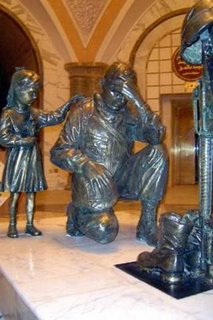DEP and computer protection
No, not Doug E. Pudge. But I did have a good chuckle when I saw it.
This is an actual program in WinXP. I stumbled on it while checking some settings.
Understanding Data Execution Prevention
Data Execution Prevention (DEP) helps prevent damage from viruses and other security threats that attack by running (executing) malicious code from memory locations that only
Unlike a firewall or antivirus program, DEP does not help prevent harmful programs from being installed on your computer. Instead, it monitors your programs to determine if they use system memory safely. To do this, DEP software works alone or with compatible microprocessors to mark some memory locations as "non-executable". If a program tries to run codemalicious or notfrom a protected location, DEP closes the program and notifies you.
DEP can take advantage of software and hardware support. To use DEP, your computer must be running
Is it safe to run a program again if DEP has closed it?
How can I tell if DEP is available on my computer?
Note
- By default, DEP is only turned on for essential
Windows operating system programs and services. To help protect more programs with DEP, select Turn on DEP for all programs and services except those I select.
 Kodiak's Blog
Kodiak's Blog


